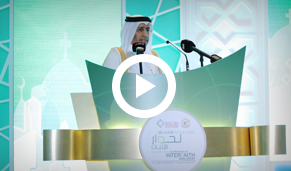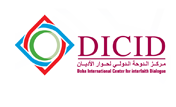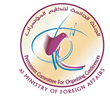Dear religious leaders; all distinguished Guest; Ladies and Gentlemen,
First of all I would like to express my gratitude for the wonderful hospitality of DICID, and my great thanks for inviting me to this conference.
I come from Georgia, a country in Eastern Europe, and my paper mainly deals with the issues of Religious Education as a challenge for the modern Georgian society. In this paper I am arguing that Religious Education is a flexible device in facilitating critical social and emotional skills in religiously diverse Georgian society.
Yes, this is a massage of my paper and the massage is very simple. Let me restate this in other word:
Promoting religious education, is a guaranty to open young people’s minds to respect diverse cultural and religious understanding.
Before discussing the core issues of my paper let me allow to say, in a few words, about the history of religious tolerance in Georgia, which is well connected to the great necessity of Religious Education for the Georgian society
Orthodox Christianity is a traditional Religion of the country, but also, non-Christian religions, such as Judaism has been considered as a significant factor in the Country’s historical narrative. Beside that, the, Muslim community, which traditionally practicing Sunnite Islam, has long-existing tradition in Georgia. As well as the Armenian Apostolic Church, whose doctrine differs from the Eastern Orthodoxy, was highly respected. Furthermore, the Roman Catholic Church; Baptist Church; Evangelical Church and other Christian denominations are inseparable part of the country’s religious history.
Yes, for centuries Jews, Muslims and Christians have lived side by side and coexisted peacefully in Georgia. But, this attitude changed under the atheist regime when religion replaced by totalitarian ideology, which was against any openness and diverseness. Almost 200 years constant repression and sever purge was taken place in Georgia that distorted our belief and eradicated our memory of toleration.
End of the twentieth century Georgia declared independence from the Soviet bloc and started fighting against totalitarianism, but the people appeared completely unprepared for this task, because they were unaccustomed for liberty. Georgians found this battle very difficult, because the enemy was no longer outside (like, it was in the past when Atheism was blamed all the failure of the people) but inside, as says one of the famous Georgian philosopher, Merab Mamardashvili. Yes, the enemy was inside, in our consciousness, in our belief, and in our understandings, which abundantly expressed in religious intolerance, particularly after the fall of the communism when religion filled up the ideological vacuum and merged into national identity. Since that time religion is a powerful instrument, even in the functioning of the State affair, and forcedly influences on politics, culture and education. Furthermore, the dominant position of Religion (mainly, Eastern Orthodox Christianity) formulated the concept of the new national identity, such as - being Georgian means being Orthodox. On one hand, this could be evaluated as renewal of the Georgians traditional approaches toward Orthodox Christianity, as it was country’s traditional religion, which played special role in our history, but on the other hand, this new concept caused problems regarding to approaches to non-orthodox citizens living in the country. Unfortunately, we have the cases today when the people facing discriminatory approaches by their religious ground in Georgia and those people who are aspiring to solve these discriminatory approaches normally apply to the state authority to protect their rights. But the state, which has the power-orientated policy and the legitimate force seems weak and ineffective in solving this problem, because the nature of the problem is peculiar in its ground. To solve this problem we have to overcome the extremist mindset, and all its application in the people. Extremism is always connected to religion, and this is a perversion of religious belief, which plant seeds of hate and produce wrap minds of religion. As former prime minister of Great Britain, Mr. Tony Blair says: “we will not deal with the root of any kind of extremism unless we confront this fact by using the proper education. That is why in the 21st Century education is a security issue, and not any education, but education specifically that opens young minds to “the other”, those who are culturally and religiously different
Is religious teaching compatible with this policy in Georgia?
NO! Unfortunately this is only one answer on this question!
The place of God in Georgian public schools has been discussing since religious education got its start from 1995, after the collapse of the soviet regime. But, all this was confessional approach to religion, promoting to a specific faith tradition, such as Orthodox Christianity. Since 2004 the religious study policy was dramatically changed. The State, under the new government of the National Movement, declared his new policy that religion should no longer have any place in public schools. It could be surprise, but it is reality in 21st century that religious education is not offering to schools, and Georgia is one of the victim of this policy.
What does this mean?
In other word, this means that religious education, as the most flexible device, has been removing from the constant effort to promoting tolerance, cultural mediation and interfaith dialogue in multi-religious Georgian society, where religion springs the conflicts sporadically more than twenty years in the whole region of Caucasus.
Government Justifies his new policy arguing that as Georgia is a secular country there should not be the place of Religion in public space. Party I do agree with the statement, that Georgia is a secular state, but secularity does not mean atheism, where religion is forbidden. Pluralism is a significant character of the modern Georgian society and in this context the issue of Religious Education is gaining particular importance and meaning, which should be envisaged as a tool for social cohesion and peaceful coexistence.
Again, to opposing of any kind of intolerance the religious education is to be considered as a mechanism, which provides lucid minds for peaceful coexistence. Without such knowledge the society could be an easy prey for demagogy, superstitions and passions that can eventually split and polarize them.
So, yes, Religious Education is a Challenge for the modern Georgian Society and I want to respond this challenge to prepare text-book in Religious Education for Georgian students, first ever in Georgia.
The teaching of religion will be based on “anti-dogmatic” method, which treats religion as a topic of social interest. The “undogmatic” approaches put great stress on the needs of multi-cultural and multi-faith society in order to respond the understanding of religions as a source of peace, love and kindness in order to avoid conflict on the ground of faith.
The Guiding principles of the Text-Book is a Toledo Principles of 2007, on Teaching About Religion and Beliefs in Public Schools adopted by the OSCE. This principles based on pluralist strategy of religious teaching and orientated to the concept, of - "how to learn from religion”. It develops openness toward inter-religious learning, but also maintains individualism and one’s own uniqueness, which is highly significant in the religious teaching process. This method focused the concept of what suppose to be share from others tradition, rather than separate from them.
Competence of teachers
One of the most important parts of teaching religion is a teachers and their qualification. This is the most difficult barrier to be beaten in this task.
In this regard my short-term plan is to establish religious study program in the university for teachers’ training. Unfortunately, there is no Religious Study faculty functioning in Georgia and this is one more important issues to be promoted at the University level, too.
To sum up, I have to restate the main point of this paper, that religious education is the most useful and meaningful device for students’ personal development. This is informational exchange process which makes the discussant aware of similarities and differences between various religious history, traditions and rituals as a good ground for meaningful dialogue between young generations not only school but also at the university level.
I believe that this project makes the next generations more reflective, enlightened and healthier with regard of religious tolerance issues, that will help transition of my country from the totalitarian atheist ideology to the values of religion.
Thank you!


